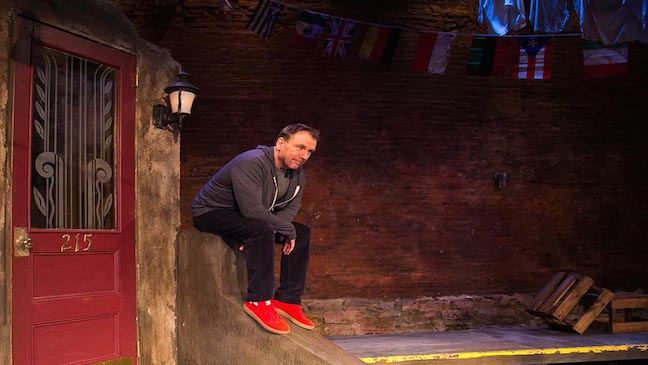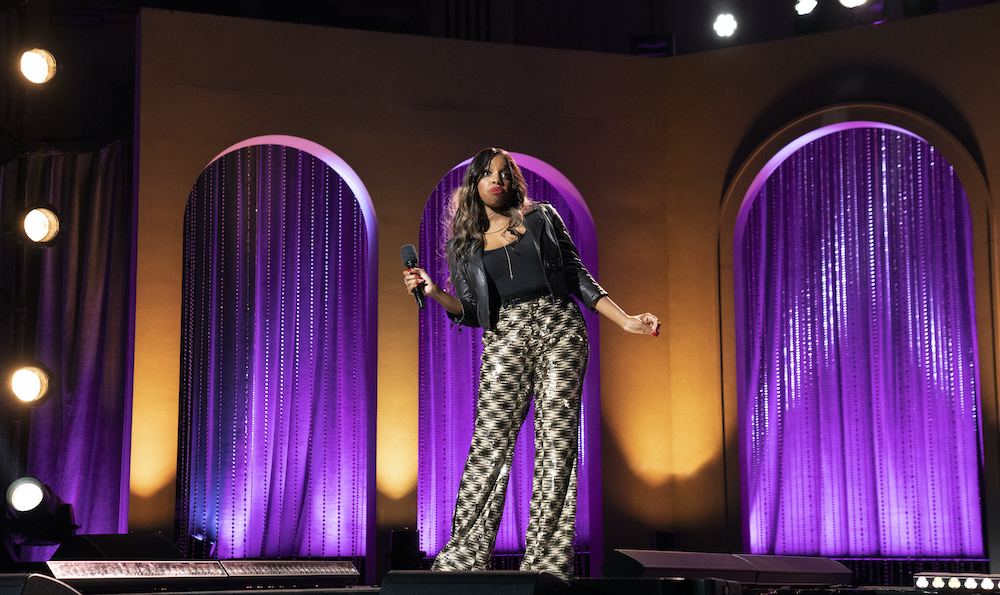A summer heat wave seems almost too perfect a time to experience New York City through Colin Quinn’s eyes. You think this is something?! Shoulda been here for the Summer of Sam. Quinn was.
Then again, you could pick any season and Quinn would find a way to put it all into perspective as how much this big city has changed over the generations and centuries.
And that’s exactly what he does in “The New York Story,” which opened its Off-Broadway run last week at The Cherry Lane Theatre. If “Long Story Short” (which jumped to Broadway and an HBO special) took on the entire history of the world, and “Unconstitutional” proved his political savvy, Quinn’s latest one-man show is his most accessible yet.
Based on his humorous new book, “The Coloring Book: A Comedian Solves Race Relations in America,” and directed by Jerry Seinfeld (who previously also guided Quinn’s “Long Story Short” to Broadway), Quinn notes with rich irony how sensitive we behave today. Former NYC Mayor Ed Koch wouldn’t have any of that, wearing his heart on his sleeves instead, Quinn recalled. If you want to draw any line from Quinn to Seinfeld to political correctness and stifling conversations, then it’s a fine line indeed. Because Quinn — who roused as much rabble as he liked as host of Saturday Night Live‘s Weekend Update from 1998-2000, a short-lived live show on NBC, and then Tough Crowd on Comedy Central from 2002-2004 — hasn’t gotten soft a decade later.
Though he wistfully wonders and reflects upon how soft his city has become.
“New York City is the great melting pot. People just hope it’s completely melted by now,” Quinn suggests onstage. Similarly, he observes:
- “We celebrate diversity by trying not to talk about it all.”
- “The only people who speak authentically now are immigrants.”
And so, over the course of a breezy hour-plus, Quinn reveals to the audience how the personality of NYC, a brand known around the world, has come from waves of immigrants over the centuries. From the original natives — topless smokers, he describes the Lenape tribe — to the Dutch (“fucking Yankees!” is a Dutch phrase, by etymology), learning superiority from the British, order from the Germans, civil service from the Irish, through to the Jews, Italians, Puerto Ricans, blacks, Greeks, Dominicans, Koreans, Jamaicans and Haitians, Indians and Russians.
Flags from the various nations hang on one line; laundry out to dry on another. Quinn moves about from a makeshift brownstone stoop to old crates, as if he’s the man on the corner telling you stories to welcome you to his neighborhood. It’s funny because it’s true.
An Irishman himself, Quinn has an extended bit of fun describing how Law & Order, a quintessential TV drama that has aired multiple versions on NBC for 25 years and employed countless actors, somehow never reflected the reality of Irish cops in the NYPD (nor even hired Quinn, as he joked on a recent stand-up set on The Tonight Show).
From the opening disco beat to stories from his childhood in Brooklyn, Quinn also time and again returns to the 1970s New York, when the city was damn near bankrupt financially but wealthy beyond compare in terms of culture, and in a prejudiced but fair sensibility, as Quinn looks back upon it.
“I know it was a hellhole. I lived here. It was the worst,” he says.
The Brooklyn he grew up in? “There were only five white stops and everybody knew it. The blacks and Puerto Ricans would tell you, ‘Hey buddy, this is your stop.'” Brooklyn today? “Now the L train at 2 a.m. looks like a ski lift.”
Quinn has a deft way, too, of tipping you to whether you’ll get a seat on the 7 train to Queens by scanning the ethnicities of the people inside the car, and immediately knowing what stop they’ll get off — if they’ll even spare you a seat between Times Square and Flushing.
It’s a true tale about what New York was and what it is becoming, told in a lighthearted way that anyone anywhere can get behind. Because this New York story is Colin Quinn’s New York story.
Colin Quinn The New York Story plays in limited engagement through Aug. 16, 2015, at the Cherry Lane Theatre. Showtimes: Tuesday-Friday at 8 p.m., Saturday at 5 p.m. and 8 p.m., and Sunday at 3 p.m. and 7 p.m.



